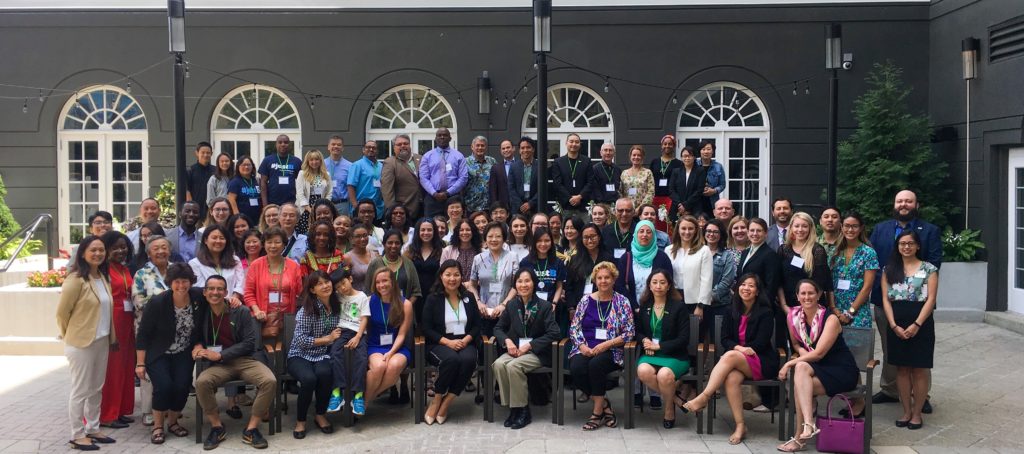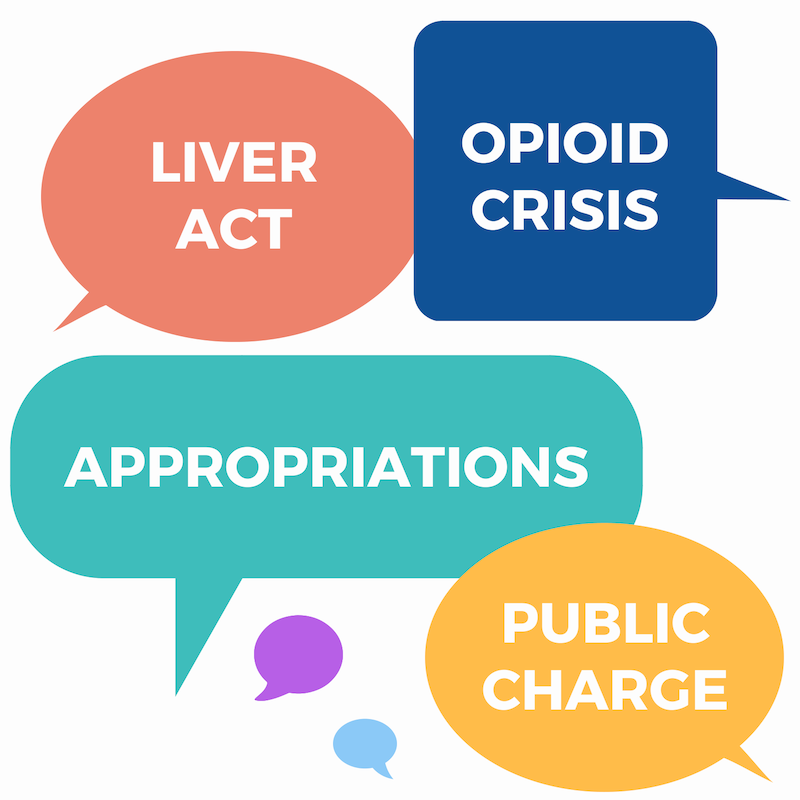Hep B United National Coalition Convenes in Washington DC for 7th Annual Summit
WASHINGTON, D.C. (July 2019) –Hep B United, a national coalition established by the Hepatitis B Foundation (HBF) and the Association of Asian Pacific Community Health Organizations (AAPCHO) to address the silent epidemic of hepatitis B, will host its seventh annual summit in Washington, D.C., July 23rd to 25th. The summit brings together over 100 community leaders, advocates, and people with hepatitis B to promote screening and prevention strategies and advocate for equitable access to health care to further its mission to eliminate hepatitis B in the United States. Worldwide, nearly two-thirds of those infected with hepatitis B- over 200 million people- are unaware of that they are infected. Summit attendees will address ways to identify those “missing millions” who do not yet know that they are living with this often-silent disease.
Hepatitis B is caused by a virus and is the world’s most common, serious liver infection. It is also the deadliest vaccine-preventable disease, with nearly 1 million people dying each year from hepatitis B-related disease worldwide. In the United States, up to 2.2 million Americans are chronically infected with hepatitis B, yet most do not know it. Without early diagnosis and intervention, one in four people living with hepatitis B will die prematurely from liver failure or liver cancer.
“We can save millions of lives in the U.S. and worldwide by using the tools we have and building much-needed infrastructure to prevent, diagnose and treat hepatitis B,” said Chari Cohen, DrPH, MPH, senior vice president of the Hepatitis B Foundation and co-chair of Hep B United. “The annual Hep B United Summit brings our partners together to share best practices and develop strategies for the coming year to increase national attention and resources to address the epidemic of hepatitis B.”
The Hep B United summit is the largest convening of hepatitis B leaders from community coalitions, national nonprofit organizations, individuals and family members affected by hepatitis B, and public health agencies in the United States. Hep B United is comprised of more than 40 community coalitions across the country located in 29 cities, 20 states, and Washington, D.C. The summit is part of global events to mark World Hepatitis Day, observed each year on July 28th, the birthday of Dr. Baruch Blumberg, Nobel Laureate who discovered the hepatitis B virus and developed the first vaccine. The summit’s theme, “Eliminating Hepatitis B: Local Change, Global Impact,” includes sessions that share innovative local, national, and global programs to prevent, diagnose and treat hepatitis B. The summit will also feature #justB, Hepatitis B Foundation’s national storytelling campaign that tells the personal stories of people affected by hepatitis B to increase public awareness and combat stigma and discrimination.
Continue reading Hepatitis B Leaders Mark World Hepatitis Day with Pledge to Find the Missing Millions →



 Join Hep B United on Monday, December 3rd at 3:00 pm Eastern Time for updates on hepatitis B policy and advocacy! Learn about hepatitis B and liver cancer-related legislation, recent policy changes, new resources, and opportunities to get involved in hepatitis B advocacy in 2019.
Join Hep B United on Monday, December 3rd at 3:00 pm Eastern Time for updates on hepatitis B policy and advocacy! Learn about hepatitis B and liver cancer-related legislation, recent policy changes, new resources, and opportunities to get involved in hepatitis B advocacy in 2019.